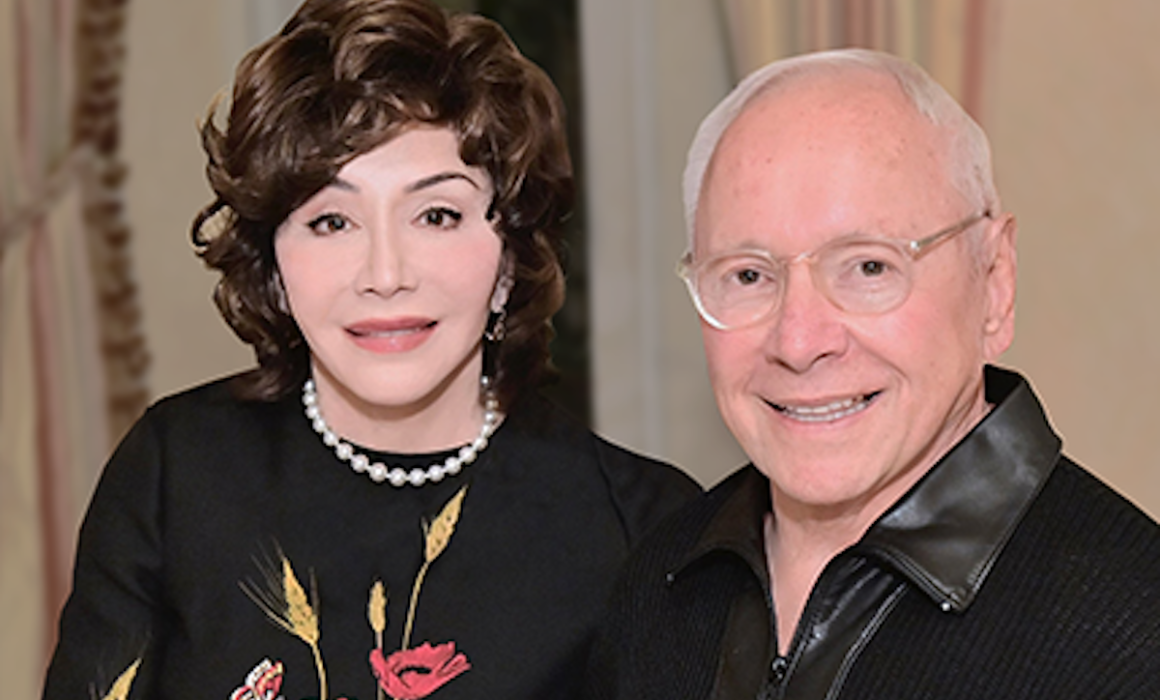Transformational Gift Funds New Center to Accelerate a Sustainable Future
The Technion-Israel Institute of Technology announced today that American philanthropists Lynda and Stewart Resnick, co-owners of California-based The Wonderful Company, have pledged, through their foundation, a $50 million gift to transform the university’s research and development of sustainability and catalysis. The $50 million gift will establish the Stewart and Lynda Resnick Sustainability Center for Catalysis, designed to empower faculty and students to uncover new ways to maintain global growth while protecting the planet for future generations. The pledge is the latest in a series of gifts by the Resnicks’ foundation to improve the quality of life of future generations by protecting the ecosystem and preserve natural resources. The Center’s activity will strengthen the State of Israel and its economy and bolster the Technion’s position as a global center of innovation. It will facilitate the recruitment of young scientists and promote research collaborations with academia and industry.
“The daily impact of environmental change is seen through every aspect of our world. We need great minds across the globe working to preserve the planet to prepare for the needs of future generations. It’s now or never,” said Stewart Resnick, chairman, and president of The Wonderful Company. “Through the resources, dedication, and efforts that will emerge from this sustainability and catalysis center, we will confront the climate crisis rather than hide from it. Lynda, The Wonderful Company, and I are proud to call the Technion partners.”
The inspiration to create the Stewart and Lynda Resnick Sustainability Center for Catalysis stems from the university’s initiative to reform the approach to the rapidly growing population and longer life expectancies that will result in more than 10 billion people living on Earth in the year 2050. Innovative solutions to produce food, medicines, and other products are critical due to the accelerated depletion of essential natural resources. Technologies developed in the Stewart and Lynda Resnick Sustainability Center for Catalysis will enable humankind to meet its needs efficiently and speedily while lessening humans’ negative impact on nature and its resources.
Catalysis is a chemical process that dramatically speeds up a reaction between molecules; it also occurs in our bodies. In industry, catalysis is involved in 90% of the production processes. A catalyst is the molecule responsible for this acceleration, and it drives many processes that are not otherwise possible. The constant improvement of catalysis processes makes industrial methods more efficient and reduces their environmental damage, hence the connection between catalysis and sustainability.
“We understand today that continuing to produce more and more with the current methods is not a sustainable solution,” added Distinguished Professor Ilan Marek, of the Schulich Faculty of Chemistry, who will head the Center. “Instead, we must refine the production processes and reduce their impact on the environment. The key is improving the many catalytic processes currently being used in thousands of production processes in all branches of industry. By using new catalysts, we can, for example, not only reduce pollution in the process of plastic production but also make plastics that can be degraded and recycled.”
Distinguished Prof. Marek’s leadership will be especially important as projects emerge that address how to reinvent global production in more sustainable, cost-effective, and efficient ways to reduce environmental harm. The 65,000 ft2 building with large, open-space laboratories will incorporate a modular infrastructure that meets current needs and can be adapted to accommodate future developments in scientific technology equipment. The facility’s unique architectural design aims to foster collaboration and interaction among researchers.
“We thank Lynda and Stewart Resnick for their partnership and transformative gift. The climate crisis is one of humanity’s greatest challenges in the 21st century,” said Technion President Professor Uri Sivan. “Coping with this challenge demands many different scientific capabilities. The Technion has recently created a revolution in dealing with major global challenges based on the understanding that bold research achievements require interdisciplinary efforts that link researchers and students from varied scientific and technological fields. The Stewart and Lynda Resnick Sustainability Center for Catalysis will encompass a wide range of scientific expertise and enable us to meet the climate crisis and sustainable development challenges.”
Michael Waxman-Lenz, CEO of the American Technion Society, said, “The Resnicks’ philanthropic vision demands forward-thinking actions to preserve and protect our planet. Their prescient gift to the Technion will enable some of the world’s brightest minds to tackle sustainability challenges through multidisciplinary research. We are deeply honored by Lynda and Stewart’s exceptional generosity and their trust in the Technion.”
The Wonderful Company, co-run by the Resnicks, is one of the largest privately held companies in the United States, whose iconic brands include FIJI Water, POM Wonderful, Wonderful Pistachios, Wonderful Halos, Wonderful Seedless Lemons, Teleflora, JUSTIN, JNSQ, and Landmark wines. Every year, the Resnicks invest in education, community development, and health and wellness initiatives across the Central Valley and beyond, a place-based giving approach centered on investing in, listening to, and collaborating with the communities where their employees live and work.
To date, the Resnicks through their foundation, and The Wonderful Company have invested more than $2.3 billion in philanthropy, with more than $1.3 billion invested in environmental sustainability, to help combat climate change and preserve the planet for future generations. Earlier this year, the Resnicks pledged the largest gift in the California Institute of Technology’s history and among the largest ever for environmental sustainability research with plans to open the Resnick Sustainability Center as a hub for research and education endeavors to advance innovative sustainability solutions. They also pledged a historic gift to fund a new agricultural innovation and research center at The University of California, Davis. As longtime supporters of research and development, the Resnicks aim to create long-term global value through their gifts and open new figurative portals to sustainability in research, education, and society.
